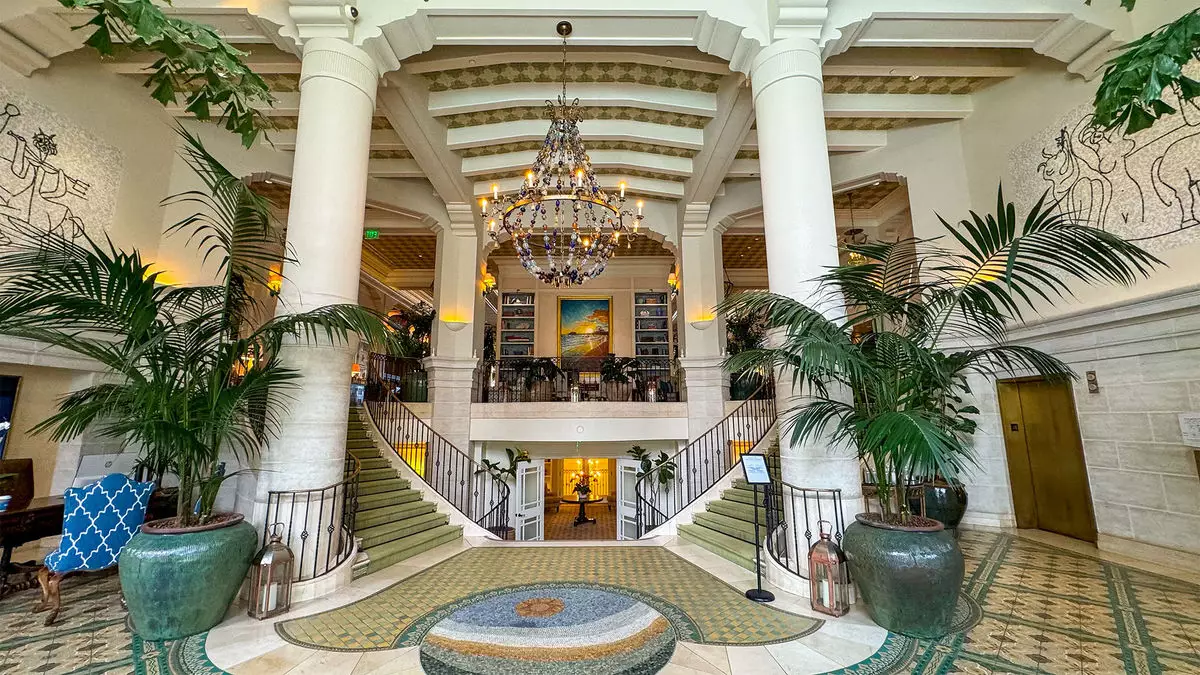On a serene day in Malibu, the glaring blue sky and crashing waves almost mask the scars left by the recent fires devastating California’s picturesque coast. Businesses like the Malibu Beach Inn, which recently reopened after a significant 16-day closure, now symbolically illustrate the juxtaposition of natural beauty and human tragedy. The restaurant terrace appears to beckon diners with its stunning views but is distressingly quiet. Only one table of two graces the space, suggesting that fire-ravaged surroundings are taking their toll not only on the geography but also on local spirits and economic vitality.
The looming presence of the Palisades Fire—a calamity that followed shortly after the Franklin Fire—has cast a shadow over this iconic locale. Despite the Malibu Beach Inn’s efforts to clean every inch of the property and ensure guest safety with air purification systems and sanitized linens, the aftermath is palpable. Gregory Day, the hotel’s hospitality president, has acknowledged that many guests have been replaced with firefighters, laboring tirelessly in the face of disaster. This unanticipated shift in clientele highlights the emotional and economic complexities facing businesses in areas prone to environmental catastrophes.
As Malibu grapples with post-fire recovery, other hospitality establishments in nearby Santa Monica share a similar fate. Hoteliers face a dual responsibility: to support emergency services while simultaneously reviving the tourist economy, which is vital for local livelihood. Following the fires, properties like the Fairmont Miramar Hotel & Bungalows have actively sought to combat the misconception that danger looms throughout the region. Simon Fricker, the hotel’s general manager, has urged potential visitors to show their support, underscoring the ironic reality that only a fraction of Los Angeles County has been affected.
Economic recovery often hinges on perception. Many visitors decide against traveling based on rumors of broad devastation, despite only 2% of the area being impacted. Adam Burke, CEO of the Los Angeles Tourism & Convention Board, emphasizes that maintaining tourism is not merely a business strategy; it is essential for community resilience. Over 540,000 Angelenos rely on the tourism sector for their livelihoods. Therefore, targeting communication that distinguishes the affected areas from the broader appeal of Los Angeles is crucial.
The innovative strategies employed by various hotels indicate a concerted effort to balance recovery and community support. For instance, the Fairmont Miramar initiated a rate reduction of 40% for evacuees and emergency personnel, providing housing for those who have lost their homes while keeping a portion of their rooms available for leisure travelers. Additionally, the hotel participates in community initiatives, offering meals for first responders and hosting vital meetings for local fire department unions.
Similarly, other establishments, including Shutters on the Beach and Hotel Casa del Mar, have opened their doors to evacuees while maintaining standard operations. Approximately 35-40% of their rooms are now occupied by displaced locals, and they have aggressively slashed prices for those affected. Beyond merely accommodating people, these hotels also cater to their complexities, waiving pet fees and providing extra services such as complimentary grooming and laundry assistance. The influx of pets—where families bring not just dogs but also rabbits and snakes—adds a bizarre twist to the logistical challenges faced in the wake of tragedy.
As the fires subside and community efforts ramp up, the unified message among Malibu’s hotel leaders remains crucial. They stress the importance of encouraging visitors to maintain their travel plans. Communications strategy must focus on reassuring potential visitors that, while some places have been hurt, others remain lush and inviting for exploration. Each hotel echoes a plea: “Do not cancel your plans. Support our community.”
Moreover, this resilience is underscored by the recognition of the human spirit in communities that come together in hardship. The camaraderie among hotels indicating a collaborative chorus of resilience is a testament to the communal bonds that strengthen during crises.
As Malibu and its neighboring areas inch toward recovery, it becomes evident that the interaction of hospitality, community engagement, and environmental realities creates a nuanced narrative. It is one of resilience, solidarity, and the essential role of tourism in restoring not just businesses, but also the collective spirit of those who call Malibu home. The road to recovery may be long, but with ongoing support and a message of hope, Malibu’s vibrancy is poised to resurface.


Leave a Reply